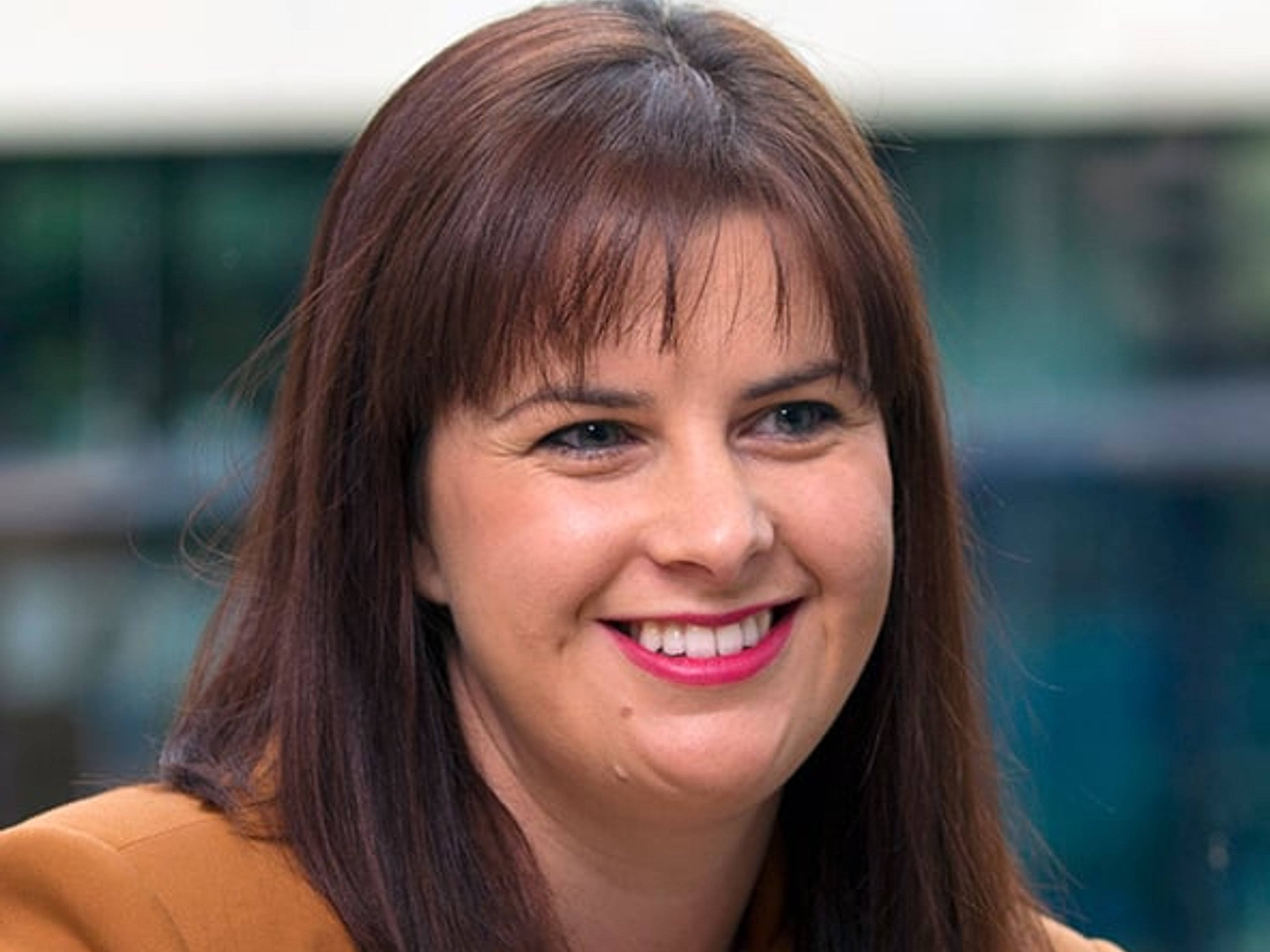Case study: Ailsa Buchanan
Head of Transitions, Working Families and Carers Network Chair

How do you juggle your responsibilities as head of transitions and chair of the Working Families and Carers Network? How has the firm reacted to you taking on a network role?
It is a juggle, but I’m very well supported by a fantastic (and very capable) Transitions Team. Alongside an engaged network community. Both roles draw on my organisation, strategic and leadership skills – skills I very much enjoy using each day.
The firm is very supportive of my involvement; in fact, it was an ‘encouraging nudge’ from a former Baillie Gifford partner that resulted in me taking on the chair role in the first place. I now often encourage others to consider contributing to projects or other roles outside the ‘day job’. There is a definite development opportunity there to broaden your horizons and skills and meet new people.
Why do you believe employee networks are important?
It’s the sense of community, support and belonging that our networks and groups offer. From a business perspective, they provide a connection between the partnership and staff and allow for two-way communication. As a firm, we need to stay relevant, informed and connected to our people. Networks are one way we can achieve this. It is also very encouraging to see the volume of change across the firm via our networks.
What made you want to get involved in the Working Families and Carers Network?
Predominantly because I saw an opportunity for improvement in our overall support for working parents and carers but also because I felt really grateful to have been so well supported by both my own manager and a few close work friends during my own journey to parenthood. I quickly learned that not everyone had the same experience, and I really wanted to ensure that became a thing of the past.
Baillie Gifford supports some flexible working. Why are flexible working provisions important to you, and how does the company implement them effectively?
Some of us will choose to have relatively long careers here, and I think it’s important that flexible working is there and accessible for all. We should recognise that ‘flexible’ looks different to everyone and can also change as our careers and life circumstances change. For me, flexible working currently allows me to reduce my hours and time in the office, which in turn allows me to do a few school runs per week, which makes a world of difference to family life.
In my role, I am open about my own flexible working arrangements – including the challenges! I also keep an open mind when recruiting for my teams and encourage others to do so. There is a balance to be achieved between individual and business needs, but it is possible to find it.
What three qualities make someone thrive in the Transitions Team? How do these translate to Baillie Gifford more generally?
Strong communication and organisational skills are key in ensuring our clients feel supported and view us as a trusted partner during any transition event, whether that be onboarding, offboarding or a reorganisation of their assets. We also need to be adaptable, too. There are so many variables at play during a transition, and often, we need to be able to revise plans and react quickly. Each client and event is unique, so it’s really important that everyone feels confident working in that type of environment.
You have been involved in industry awards and even won one for your network role. What was this experience like, and how was it experiencing the ceremony with other colleagues?
It was a privilege to attend the Women in Investment Awards, never mind winning an award. I found it to be such an uplifting and inspiring experience to hear of the efforts and successes of so many fantastic women in our industry. The evening itself was a lovely opportunity to spend time outside of the office with like-minded individuals from Baillie Gifford.
What, in your opinion, makes Baillie Gifford different from other financial services firms? How can we harness these advantages?
When comparing ourselves to other firms, I would say Baillie Gifford has a relatively simple business model. Our goal is to do the best for our clients, and our people are at the heart of how we achieve this. That is not to say that staying at the forefront of the asset management industry and serving clients globally is easy! However, generally, you will find individuals and teams are motivated and working collaboratively to achieve that common shared goal.
What was your route to the position you’re in now? What did you study prior to joining the firm?
I studied Business Studies at Glasgow Caledonian University, graduating in 2007. I then joined EY, became a chartered accountant, and spent five or so years predominantly working with financial services audit clients, including the investment trusts managed by Baillie Gifford.
In 2012 I joined the Client Accounting department in a management role, and I’ve been fortunate enough to have had various opportunities for growth and development ever since, which has led to my current role as Head of Transitions.
Life at Baillie Gifford
Find out about social opportunities and what diversity and inclusion means to us.
